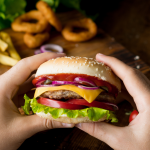There are quite a few kidney stones in the world today. This is because kidney stones are not only common, but they are also quite painful, and often they remain in the body permanently.
What are the Kidney Stones?
Kidney stones are hard to treat because they are formed by crystals (calcium oxalate, calcium phosphate, or calcium phosphate dihydrate) that affect the function of the kidney. As a result, those who have them may have recurrent attacks of varying severity. Treatment involves removing the stone, usually by inserting a thin tube into the kidney and removing it. The process is painful but not always dangerous. Kidney stones affect one in five people in the United States.
Kidney stones, also known as urolithiasis, are dissolved mineral deposits that form in your kidney. The crystals that cause these stones form when drinking water is concentrated, or excess liquid enters the kidney and doesn’t leave. While the condition isn’t serious, it can cause pain and a need to urinate frequently. Kidney stones are probably the most common kidney problem. Kidney stones are small pieces of minerals and salts in the urine that get stuck in the kidneys. The crystals are usually made of calcium, uric acid, and oxalate.
How to avoid getting Kidney Stones
While you can’t completely avoid the risk of getting a kidney stone, you can minimize the chances of ever having one. Here are some of the best ways to prevent kidney stones from occurring: — Drink at least eight glasses of water daily — Eat a high-fiber diet — Increase your water intake by drinking tea or water with a pinch of salt — Increase your fluid intake by drinking water or tea — Avoid drinking alcohol — Drink a glass of cranberry juice before a night of sleep — Avoid coffee and tea — Limit or eliminate any foods that contain calcium, such as cheese, milk, and mayonnaise — Increase your water intake by drinking tea or water with a pinch of salt — Increase your fluid intake by drinking water or tea — Avoid drinking.
Kidney stones are one of the most painful afflictions of the human body. According to the National Kidney Foundation, about 7.2 million people are diagnosed with kidney stones each year, and more than 50 percent of those never have them again. The good news is that there are plenty of preventative measures you can take to prevent kidney stones, and if you do get them, you can treat them with surgery and medication. This article will explain some preventative measures you can take to avoid kidney stones and the best treatments if you do get them.
By now, we’re all familiar with the symptoms of kidney stones — especially if you’re a guy: itchy back pain, painful urination, and a burning sensation in the back of the rectum. But many people don’t even know that they can have kidney stones and don’t realize they should be concerned about the stone-forming compound called calcium.
Kidney stones are one of the most common health problems that can be experienced by adults. This usually happens when the urine is not reabsorbed properly by the kidney. Crohn’s disease and other medical conditions can also cause this type of health issue. However, there are some things that you can do to avoid getting kidney stones. One of the ways that you can prevent kidney stones is to drink plenty of water. Drinking water can help you keep your urine’s pH level low and prevent deposits from forming in your kidneys.
Stones in the urinary system are a common problem, but quite a few people associate them with something serious like cancer or a kidney infection. This is very untrue, as the most common cause of them is a structure called the urinary bladder. It is made up of soft tissue, which is prone to get clogged by urine. When that happens, urine can’t get out, gather, and it hardens. The most common symptom is feeling pain and a sensation of fullness around the back of the abdomen due to the pressure. Kidney stones are the most common type of kidney ailment that affects men and women of all ages. The pain is excruciating, and the illness is often chronic. Kidneys are responsible for filtering our blood of waste products and excess water. Any blockage of the filtering process can cause these stones to build up and form in the urinary system.




